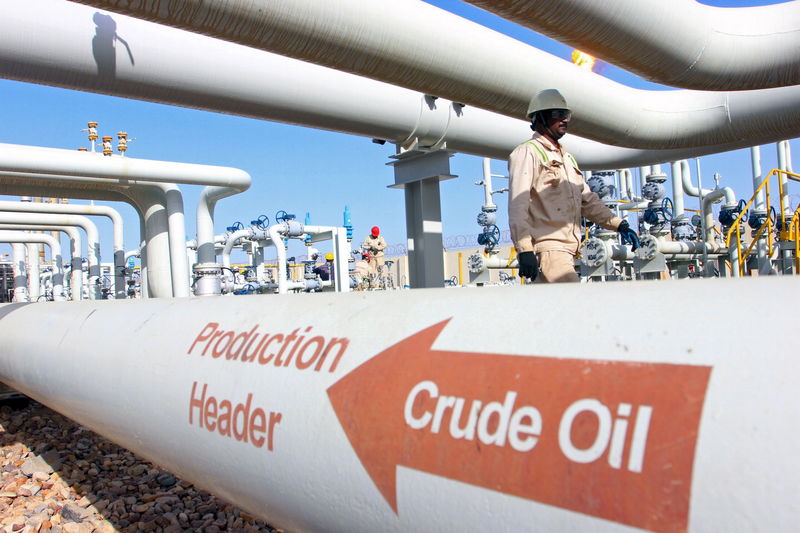* World share index up 0.1%, heading for first weekly loss in four
* Central bank easing just about supporting sentiment
* Pound on track for best month this year on Brexit deal hopes
By Tom Wilson
LONDON, Sept 20 (Reuters) - World shares climbed on Friday as stimulus measures by major central banks eased worries about growth, especially in Asian markets, while oil headed for its best week since January.
China cut a key lending rate for the second straight month on Friday, becoming the third major central bank to cut interest rates in recent days, after the European Central Bank and the U.S. Federal Reserve. markets have welcomed the central bank moves, although most of the cuts was already priced in and worries about a possible global slowdown still linger.
Renewed tensions in the Middle East, after an air attack knocked out a Saudi Arabian oil supply hub last weekend, have also unnerved investors. Oil prices were on track for a weekly gain of over 7%, their biggest weekly rise since the first week of 2019. MSCI world equity index .MIWD00000PUS , which tracks shares in 47 countries, gained 0.1%, on course for a fourth day of slim gains but still heading for a weekly loss.
The index was bolstered by Europe's STOXX 600 .STOXX , which climbed 0.3% as investors bought "defensive" healthcare, utilities and real estate stocks seen as offering stable dividends. A 0.6% gain for Asian equities outside Japan .MIAPJ0000PUS also helped.
Wall Street futures gauges suggested gains of around 0.3% ESc1 .
U.S. economic data had eased worries about slowdown in the world's largest economy. The number of Americans claiming unemployment benefits rose less than expected and home resales increased to a 17-month high in August. analysts were still cautious. Markets are waiting with bated breath for signs of where the economy is heading, said Michael Hewson, chief market analyst at CMC Markets.
"We are in a bit a sweet spot, with data starting to improve a little, and central banks on the other side remaining just about at the limit of what they can do," he said.
"But there are significant tail risks – for me, quite simply, firms won't commit to large-scale investment decisions when there's no clarity over business conditions," Hewson said.
Geopolitical risks range from the U.S.-China trade war to Britain's efforts to leave the European Union next month.
An attack on Friday by a Saudi-led coalition in Yemen highlighted tensions in the Middle East. Brent crude LCOc1 was rose 34 cents, or 0.5%, last at $64.71. MONTH FOR STERLING
Investors were also braced for volatility on "quadruple witching day" - the quarterly expiration of equity options and futures. A spike in U.S. overnight "repo" lending rates also sparked concerns of evaporating liquidity.
The rising rates, along with a quarter-point Fed rate cut, curbed demand for dollars - as did decisions by the Bank of England, the Bank of Japan and the Swiss National Bank to keep rates unchanged this week.
In later morning trading, though the dollar reversed losses and was last up 0.1% against an index of other currencies .DXY at 98.340.
"Other central banks are not in easing mode as the Fed has been this week ... dampening some of the safe-haven appeal of the dollar," said Thu Lan Nguyen, a foreign exchange analyst at Commerzbank (DE:CBKG).
Sterling GBP= reached a two-month high of $1.2566 against the dollar after European Commission President Jean-Claude Juncker said he thought Brussels could reach a deal with Britain to leave the European Union. pound was last up 0.3% at $1.2560, on track for its best month in 2019.
For Reuters Live Markets blog on European and UK stock markets, please click on: LIVE/
^^^^^^^^^^^^^^^^^^^^^^^^^^^^^^^^^^^^^^^^^^^^^^^^^^^^^^^^^^^>
